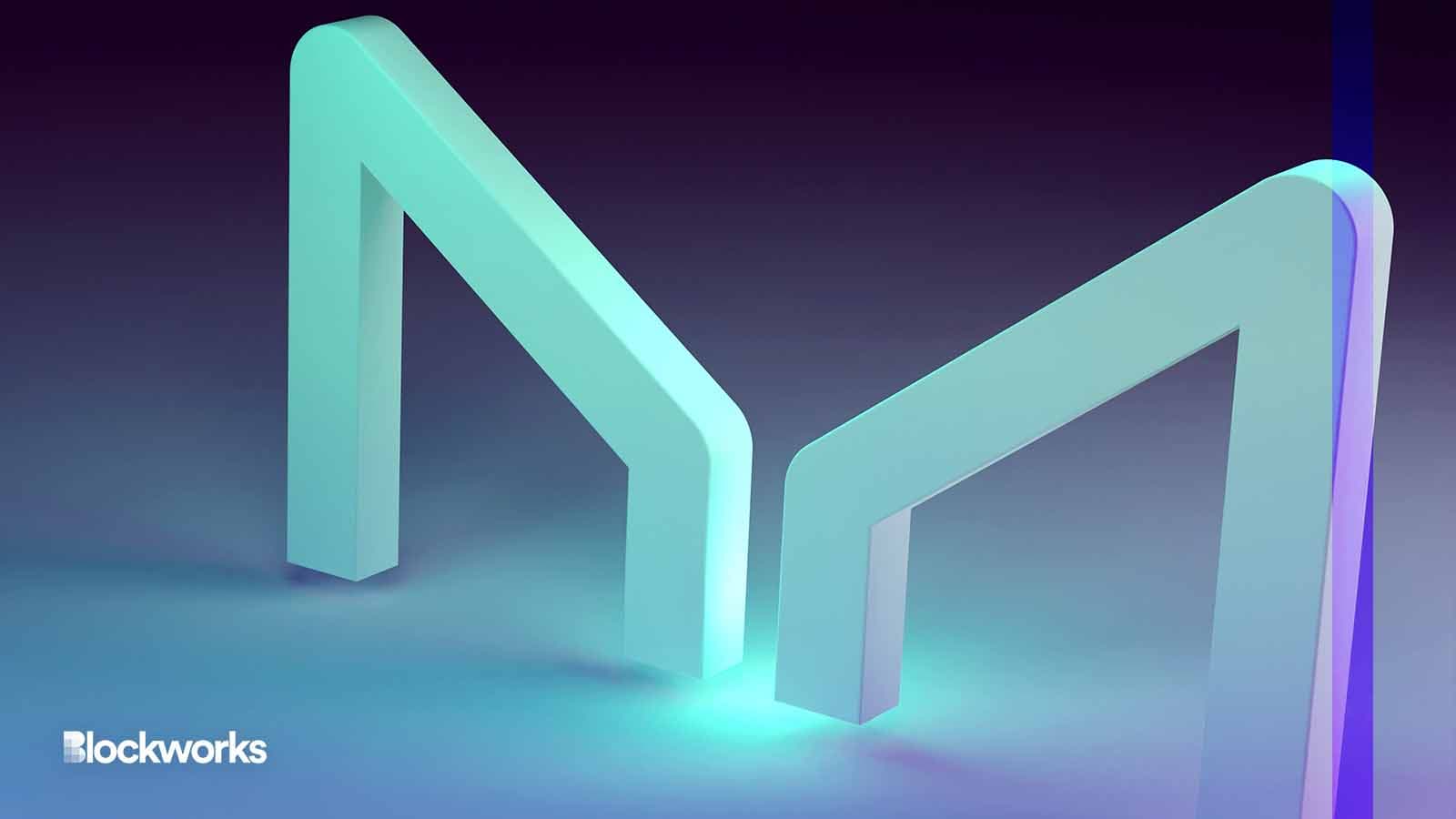MakerDAO’s Endgame Is Making Some Delegates Uneasy
The transition to metaDAOs and a change in MKR tokenomics continues to draw concerns

CryptoFX/Shutterstock modified by Blockworks
Community governance recently approved MakerDAO’s newly proposed constitution, an important step toward Rune Christensen’s “Endgame” plan, and many changes can already be observed in the community.
Part of the project’s Endgame is to transition existing Maker core unit teams into metaDAOs, known also as subDAOs, which will each have its own governance token.
As part of the transition, MakerDAO’s existing protocol engineering core unit will disband by the end of the month and move into the new operations framework. Many engineers will also be leaving the team.
Sam MacPherson, a protocol engineer at MakerDAO, explained to Blockworks that none of this should come as a surprise.
“Maker is undergoing a lot of changes to prepare for the next phase of decentralization. Rune’s Endgame plan has passed the governance vote, so Maker is being split into smaller DAOs,” MacPherson said. “Naturally, this involves people shuffling around to different positions, some new people joining and some moving on to other things.”
Although there are members that look forward to the transition, others are not so excited about the changes.
In an interview with Blockworks, MakerDAO delegate Mika Honkasalo noted that it is difficult to determine whether Endgame will change MakerDAO in a way that makes the platform unrecognizable from what it once was, or if the DAO will simply continue to move forward.
“I think one of the things, if you read the Endgame materials, is that they’re very difficult to understand…it’s a wait-and-see process of understanding how much things actually will change,” Honkasalo said.
One concern that Honkasalo noted was the dilution of MKR that would likely come with the introduction of metaDAOs. MKR is an ERC-20 token used for governance and utility at MakerDAO.
“The token economics is strange, and I don’t feel like it does anything interesting…it dilutes existing token holders,” Honkasalo said. “Rune would disagree with that, but I think it just makes Maker a potentially unreliable business partner.”
Despite his concerns, Honkasalo noted, “We’re just going to have to see how it goes.”
Honkasalo became a MakerDAO delegate after being a fan of the protocol for a long time. He believed that it could help shape the direction of the protocol at a higher level and make strategic contributions.
But, he notes that the recent process has been difficult, as many decisions around Endgame have very much been driven by Christensen.
“Besides a couple of funds, it’s been a struggle to get a lot of the large [MKR] holders to be active in [governance],” he said.
Another concern Honkasalo raised is the push to rely more heavily on on-chain assets to back MakerDAO’s stablecoin DAI.
“I understand the perspective that in the long term, it needs to be fully decentralized, but I don’t think that’s how this [stablecoin] tech can win,” he said.
Emphasizing the importance of integrating with real-world assets, he said, “You need to integrate with the real world — and not this cyberpunk thing that Maker is preparing itself for.”
Specifically, Honkasalo noted that if DAI were to be completely backed by assets such as ether (ETH) or bitcoin (BTC), which are volatile assets, there would be very little difference between holding a DAI stablecoin and these other assets.
“The product is only popular if it’s actually stable, and if it’s not stable, you might as well hold ETH,” he said. “There are other protocols that will serve those real-world asset needs in a more balanced way, without these very extreme ideas.”
Despite his criticism, Honkasalo said he is still happy to be proven wrong.
“I understand the need for change, and that’s one of the reasons why it may end up being a good thing…we just cut the fat and the extra stuff and restart with a leaner, bettered structured team…we have these weird token economics, but that ends up being fine,” he said. “That’s the positive case you can make here.”
Ultimately, the next few months will be an important time for Honkasalo, as it will help him reconsider his position as an MKR token holder and whether or not he wishes to remain a delegate.
“The changes that are being proposed are ones that would make me think to sell my entire position in a way,” he said.
Get the news in your inbox. Explore Blockworks newsletters:
- The Breakdown: Decoding crypto and the markets. Daily.
- 0xResearch: Alpha in your inbox. Think like an analyst.






